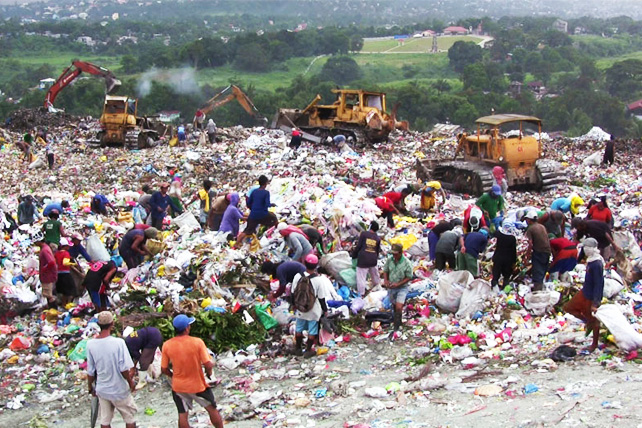Police in the Philippines are performing door-to-door drug testing in poor neighbourhoods, and adding people’s names to a list if they test positive for drug use – while the death toll of the country’s drug war slaughter continues to surge.
Groups of police officers are going from house to house in the Manila neighbourhood of Payatas ordering residents to urinate into cups. The urine is then immediately tested for prior use of methamphetamine or cannabis. If the test reveals drug use during the past seven days, the individual’s name will be added to a list of people who use drugs, according to ABS-CBN News.
Payatas is one of the poorest neighbourhoods in Manila, and is home to the largest open landfill site in the Philippines – where many local residents scavenge for recyclable materials as their only option for income.
The approach, which government officials have called a “massive drug clearing operation”, is legally dubious. Under the law, mandatory drug tests can only be imposed upon certain people – such as applicants for driving licenses and employees of public office. If the police ask a random person to urinate in a cup for drug testing, that person is not legally obliged to do so; however, the fear or pressure that person may experience may lead them to consent to the test. Father Michael Sandaga, a local parish priest in Payatas, described the operation as “tantamount to coercion because people are subjected to drug testing against their will”.
Coerced door-to-door drug testing is only the latest of countless illegal practices and human rights abuses that have taken place under the guise of the Philippines so-called drug war, spearheaded by President Rodrigo Duterte. The country’s mass slaughter of people allegedly involved with drugs has led to an estimated 13,000 deaths since July 2016, according to Duterte’s critics. Many of those targeted were living in impoverished neighbourhoods and slums, which led to Amnesty International labelling the government operation as a “war on the poor”. It is thus unsurprising that the new drug testing operation is taking place in Payatas, where nearly half of all residents earn less than $100 a month.
Duterte’s regime denies that the Filipino drug war is targeting poor people. The President’s spokesperson Ernesto Abella said in March that “the war on drugs is not targeted at any particular segment of society.” “Poverty, however, does not justify the use and selling of [methamphetamine]”, he asserted, “[and] as the President said, he has to clean up the streets of drug users, pushers and dealers, regardless of their socioeconomic status in life”.
The Philippines drug war slaughter has become increasingly bloody in recent weeks, with a grisly record of 32 people being killed in one day in mid-August. It can therefore be a potential death sentence to be added to a list of “drug users” in Payatas.
The recent death of a 17-year-old school boy, Kian Delos Santos, has led to mass protests against Duterte’s approach, and criticism from the Catholic Church and senior politicians. Delos Santos was dragged into an alleyway by undercover police officers and executed; witnesses reported hearing him scream “please can I go home, I have school tomorrow” before he was shot.
While recent protests are increasing pressure on Duterte to halt his harsh and lawless drug war slaughter, it is unclear if officials will actually change their practices – whether drug testing or extrajudicial killing. For now, it seems that poorest in Philippines society will continue to bear the brunt of their government’s repressive drug policies.


